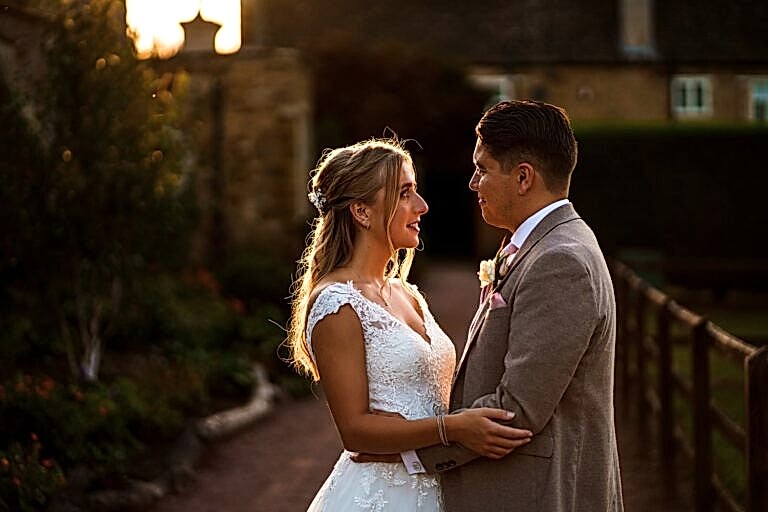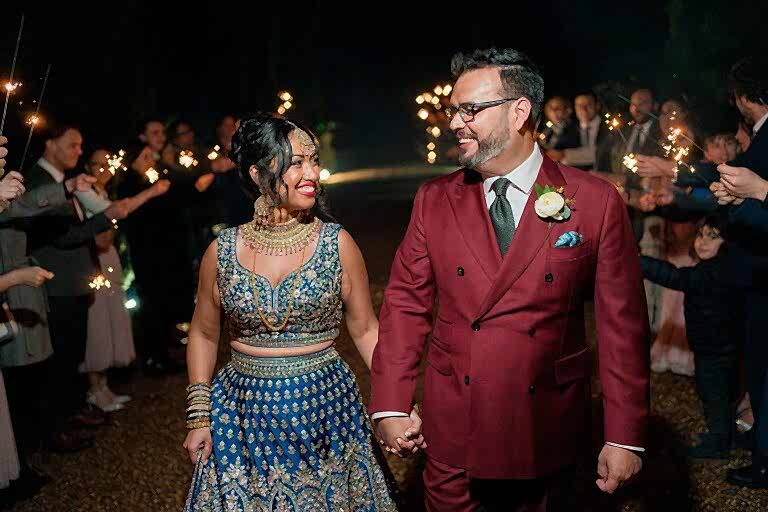Church Weddings vs Civil Ceremonies: Your Complete Guide
Church Wedding vs Civil Ceremony: Which Wedding Ceremony is Right for You?
Choosing between a church wedding and a civil ceremony is a big decision for any couple. While traditional church weddings have long been a classic choice, civil ceremonies are now more popular in the UK, offering flexibility and a chance to personalise your day.
This guide breaks down the key differences between church weddings and civil ceremonies, helping you weigh up the religious, legal, and practical considerations. Whether you’ve always imagined walking down the aisle of a church or want the freedom to say “I do” at a stunning outdoor venue, this guide will help you make the right choice for your special day.
Key Takeaways
- Church weddings are rich in religious traditions, while civil ceremonies are more flexible and personal.
- Consider your beliefs, the atmosphere you want, and practical factors like your budget and venue availability.
- Church weddings require planning with religious officials, while civil ceremonies often have shorter lead times and more venue options.
- Both ceremonies offer the opportunity to create a meaningful and memorable day that reflects your unique love story.
Church Weddings vs Civil Ceremonies: What’s the Difference?
In England and Wales, both church weddings and civil ceremonies are legally binding, but they offer different experiences. Your choice comes down to your beliefs, the style of celebration you’re after, and practical considerations like your guest list and location.
Religious Aspects of Church Weddings
Church weddings are rooted in centuries of tradition. They’re held in a church or chapel and led by a priest or vicar. These ceremonies include readings from the Bible, hymns, and prayers, making them a deeply spiritual experience.
If you’re considering a Catholic wedding, both partners usually need to be baptised Christians, with at least one being Catholic. Marriage preparation classes may also be required.
Legal Requirements for Civil Ceremonies
Civil ceremonies are non-religious, legally binding weddings conducted by registrars. They’re perfect for couples who want a secular ceremony and are open to everyone, including same-sex couples.
You’ll need two witnesses and must sign a marriage schedule, which is processed at your local register office. Costs start from £56 for a simple registry office ceremony, but fees increase if you book an external venue.



Venues: Where Can You Say “I Do”?
One of the biggest differences between a church wedding and a civil ceremony is where they can take place.
Church Weddings
Church weddings are held in religious buildings, and many couples choose a church with personal significance. The Church of England is open to all couples, even if you’re not a regular churchgoer, but some churches have specific requirements.
Civil Ceremonies
Civil ceremonies can take place in a huge range of approved venues, including:
- Registry offices
- Hotels
- Country houses
- Forests, beaches, and gardens
- Unique locations like castles, cinemas, and golf clubs
Since 2021, civil ceremonies in England and Wales can even be held outdoors at licensed venues, adding another layer of flexibility.



Key Factors to Consider
Religious Beliefs
If faith plays a central role in your life, a church wedding may feel more meaningful. On the other hand, a civil ceremony allows couples of different beliefs—or no belief—to create a celebration that works for them.
Atmosphere and Style
Church weddings are often formal and traditional, while civil ceremonies are more relaxed and modern. Think about the vibe you want for your day. Do you dream of a grand aisle walk in a historic church or exchanging vows outdoors under the trees?
Budget and Logistics
Practicalities like cost, guest list size, and travel time are important to weigh up.
- Church weddings may require donations, fees, or preparation classes.
- Civil ceremonies can be more affordable and easier to plan at short notice.



Planning a Church Wedding
Church weddings require more coordination but offer a deeply meaningful experience.
- Choose a church: Find one that’s special to you. Some may require regular attendance or baptism.
- Meet your officiant: Discuss your vision for the ceremony and ask about requirements like marriage classes.
- Incorporate traditions: Choose meaningful Bible readings and hymns to personalise your day.
- Coordinate venues: Plan the timing and travel between the church and reception venue to avoid stress.
Planning a Civil Ceremony
Civil ceremonies are all about personalisation and flexibility.
- Pick your venue: Choose from a registry office or an approved venue that suits your style.
- Make it yours: Write your own vows, choose readings, and include meaningful music to reflect your relationship.
- Meet legal requirements: Give notice of marriage 28 days in advance and budget for registrar fees (around £500 for an external venue).
Church Weddings vs Civil Ceremonies: Pros and Cons
Church Weddings
- Pros: Spiritual, steeped in tradition, and highly meaningful.
- Cons: Can have stricter requirements and less flexibility.
Civil Ceremonies
- Pros: Flexible, personal, and available in a variety of locations.
- Cons: Lack the religious elements some couples value.



Final Thoughts
Choosing between a church wedding and a civil ceremony comes down to what feels right for you as a couple. Church weddings offer a rich sense of tradition and spirituality, while civil ceremonies give you the freedom to create a day that’s completely unique.
Whatever you choose, the most important thing is that it reflects your love story and celebrates your commitment in a way that feels authentic to you.
FAQ: Church Weddings vs Civil Ceremonies
What’s the difference between a church wedding and a civil ceremony?
A church wedding is religious, led by a vicar or priest, while a civil ceremony is non-religious and led by a registrar.
Can we personalise our ceremony?
Civil ceremonies allow more personalisation, but church weddings can include elements like meaningful hymns and readings.
Are church weddings more expensive?
Costs vary. Church weddings may include donations and fees, while civil ceremonies vary depending on the venue.







